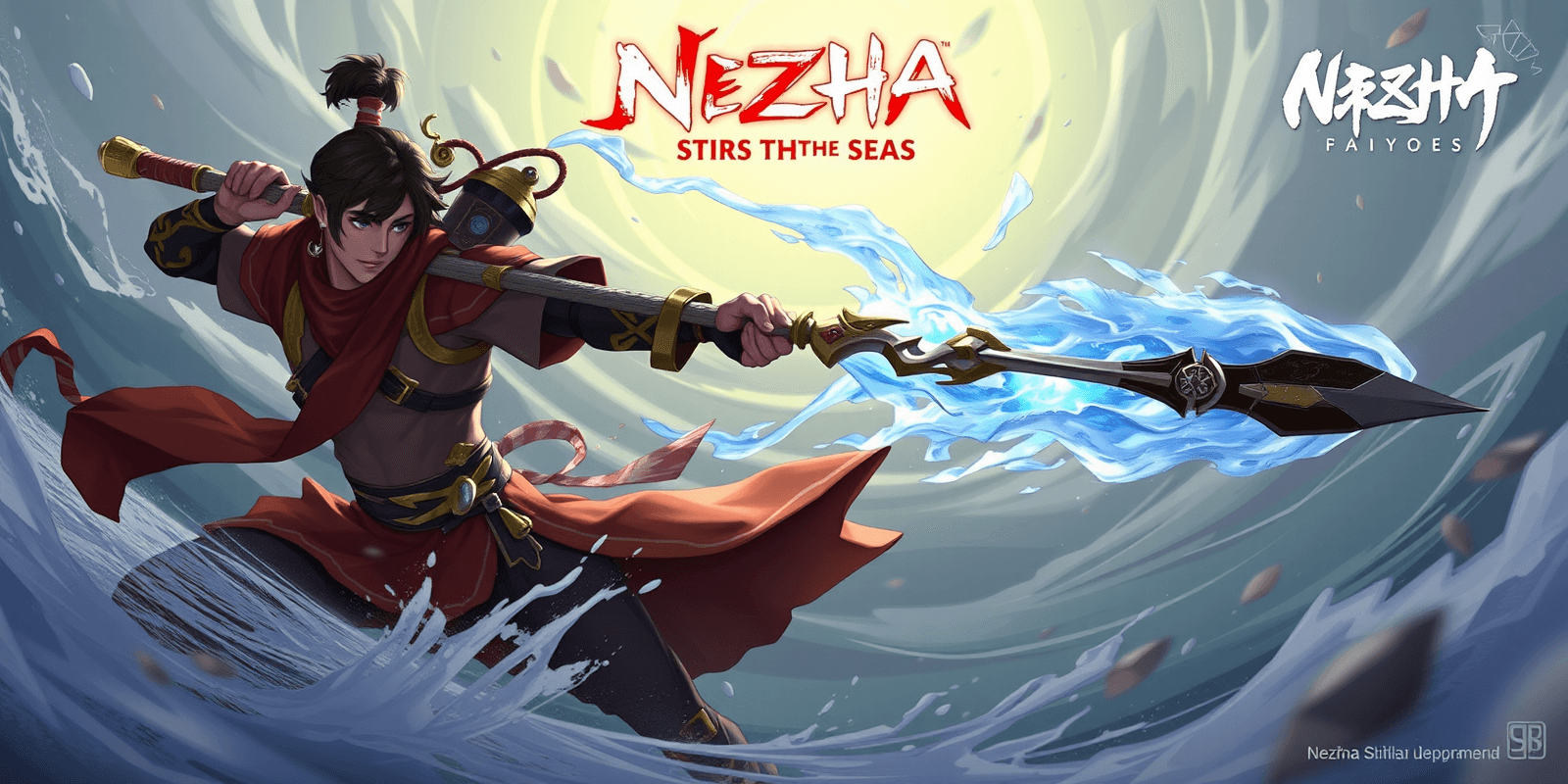Physical Address
304 North Cardinal St.
Dorchester Center, MA 02124
Physical Address
304 North Cardinal St.
Dorchester Center, MA 02124

Explore the story of Nezha, the rebellious youth who defied the gods.
In the realm of Chinese mythology, few figures resonate as strongly as Nezha, a young hero whose tale is one of rebellion, transformation, and ultimately, redemption. Often depicted with his fiery wheels and divine abilities, Nezha’s story transcends time, symbolizing the struggle between good and evil, destiny and free will. In this blog post, we will explore Nezha’s rebellion against fate, the trials he faced, and his evolution into a hero, all while intertwining the broader themes of identity and self-discovery.
The tale of Nezha begins long before his actual birth. According to the myth, Nezha was born to Lady Yin and the military commander Li Jing, but his conception was anything but ordinary. His mother carried him for three years, and upon his birth, he emerged not as a typical child but in a ball of flesh. This unconventional beginning set the stage for a life filled with extraordinary challenges and remarkable feats.
This drastic entrance into the world of mortals hints at Nezha’s destiny, suggesting that he was destined for greatness. As he grew, it became evident that Nezha was no ordinary boy; he possessed immense power and the spirit of a warrior. Yet, this innate strength placed an immense burden on him—one that would lead to his rebellious spirit and desire to forge his own path, free from the constraints of traditional heroism.
Nezha’s journey into rebellion began when he defied the constraints imposed by both his upbringing and cosmic destiny. Early on, he faced hostility from the Dragon King, who sought vengeance after Nezha killed his son. The conflict escalated, leading Nezha to harness his powers in ways that would ultimately separate him from his family and society. This rebellion against the Dragon King and the expectations around him signifies a key moment in the narrative—one that reflects the universal struggle of many young people seeking to assert their identity against overwhelming forces.
Initially, Nezha’s rebellion seems chaotic and destructive, characterized by fights and unrest. The Dragon King’s wrath marked a turning point, leading to Nezha feeling disillusioned with his life. The boy who had once embraced his powers now grappled with guilt and confusion. It is in these moments of doubt that the theme of internal conflict emerges: the hero’s journey is not solely about external battles but equally about facing one’s inner demons.
Nezha’s transformation from a troubled youth to a revered hero is encapsulated in his eventual acceptance of his fate and the responsibilities that come with it. After a climactic confrontation with the Dragon King, Nezha decides to sacrifice himself for the safety of his family and the people he loves. This act of selflessness marks the turning point in his narrative—a poignant reminder that true heroism often involves great sacrifices for the greater good.
In the midst of this sacrifice, Nezha is reborn, bestowed with a new body and a new perspective on life. This resurrection is symbolic; it represents his acceptance of both his powers and the weight of responsibility that accompanies them. Nezha’s rebirth is not just physical; it signifies a deeper understanding of his role as a protector rather than a destroyer. The phrase “Nezha Stirs the Seas” takes on a new meaning, encapsulating the idea of a hero who transforms turmoil into order, chaos into peace.
The contemporary world often reflects Nezha’s struggles: young men and women are increasingly faced with societal pressures, familial expectations, and their own aspirations. Much like Nezha, they must navigate the treacherous waters of self-discovery and personal identity. The story of Nezha symbolizes resilience, adaptability, and the courage to embrace one’s true self in the face of adversity.
As a hero, Nezha embodies the qualities that resonate with modern audiences—he is flawed yet earnest, rebellious yet ultimately selfless. His journey reflects the broader narrative of youth navigating through the challenges of growing up, defying expectations, and ultimately finding their unique path in life. The transformation of Nezha from a misunderstood child into a guardian of humanity is a universal theme that continues to inspire countless generations.
The tale of Nezha is more than just a story; it is an intricate tapestry woven with themes of rebellion, self-discovery, and heroism. As we have explored, Nezha’s journey is a reflection of the internal and external battles faced by many, reminding us that true heroism lies in the willingness to confront our fears, to rise after falling, and to embrace our identities fully.
In a world that often demands conformity, Nezha’s legacy serves as a beacon for those daring to stir the seas of their own destinies. As you reflect on this powerful tale, consider the ways in which you can channel the spirit of Nezha in your life—by standing against injustice, embracing your unique path, and becoming a source of inspiration for others. Remember, every great hero starts as a young soul searching for their place in the world.